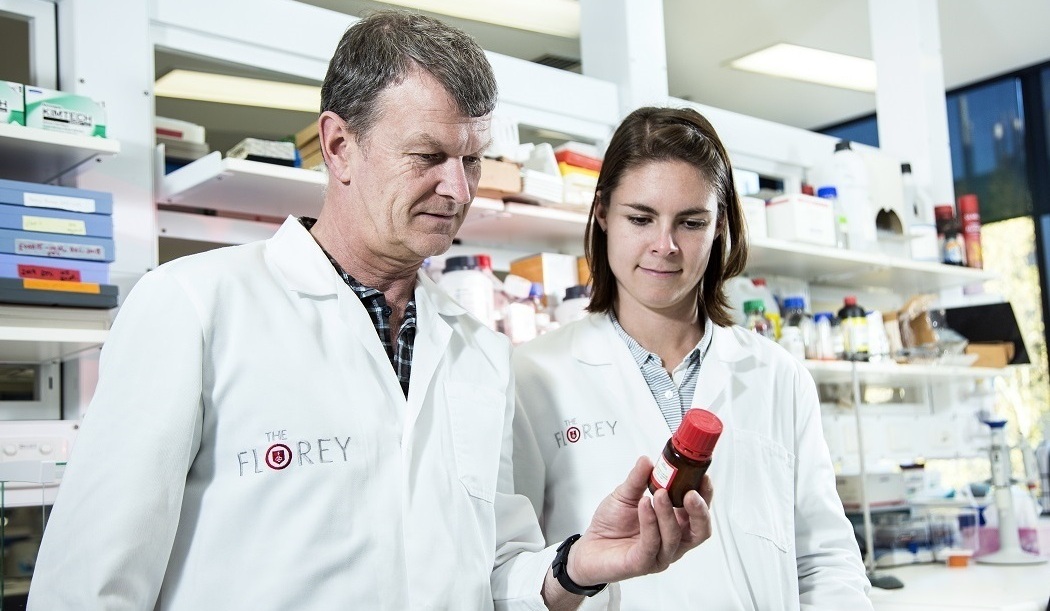
Left to right: Professor Andrew Lawrence and Dr Erin Campbell, The Florey
A world-first clinical study commenced between The Florey and St Vincent’s Hospital in Melbourne, Australia, will trial the treatment of Belsomra (Suvorexant) in 128 participants with co-occurring insomnia and alcohol use disorder.
“Over 155,000 Australians are hospitalised each year from alcohol use disorder,” said Professor Andrew Lawrence from The Florey. “Yet despite the significant social and economic burden of this disease, no new treatments have been approved in Australia in over two decades”.
Led by Professor Lawrence, a team of researchers at The Florey have been studying the brain mechanisms underlying alcohol use disorder for over 15 years. His team was the first in the world to publish evidence on the role of a peptide system in the brain – known as the orexin system – in driving relapse to seek and consume alcohol.
“When it comes to research, it’s important to be in it for the long game”.
“It has taken 15 years to get from discovery to this trial, which we ultimately hope will have a positive impact for people living with alcohol use disorder,” said Lawrence.
The team understand that Belsomra, a medication currently approved in Australia for sleep disorders, could be repurposed to treat both alcohol use disorder and co-occurring sleep disorder in an integrative approach.
“The orexin system demonstrates just how complicated addiction can be. We know that chronic intake of alcohol greatly disrupts sleep and wake patterns which, in turn, can drive the brain to further seek and consume alcohol,” said Lawrence.
Belsomra (manufactured by MSD) is understood to block the binding of orexin in parts of the brain involved in addiction. The medication also targets the amygdala, a brain region associated with mood disorders, including depression and anxiety.
The study will be examining sleep measures in trial participants, as well as looking at alcohol withdrawal symptoms and ongoing alcohol use.
In the double-blinded study, participants will receive either Belsomra or placebo treatment daily for 7-10 days in hospital before continuing treatment for up to six months with regular follow-up.
The success of the study could see the medication trialled in larger populations and other forms of substance abuse.
The study was funded by the Percy Baxter Charitable Trust & Victorian Medical Research Acceleration Fund. Belsomra and matched placebo were provided gratis by MSD.
Further details of the clinical trial can be found on the clinicaltrials.gov website
.
